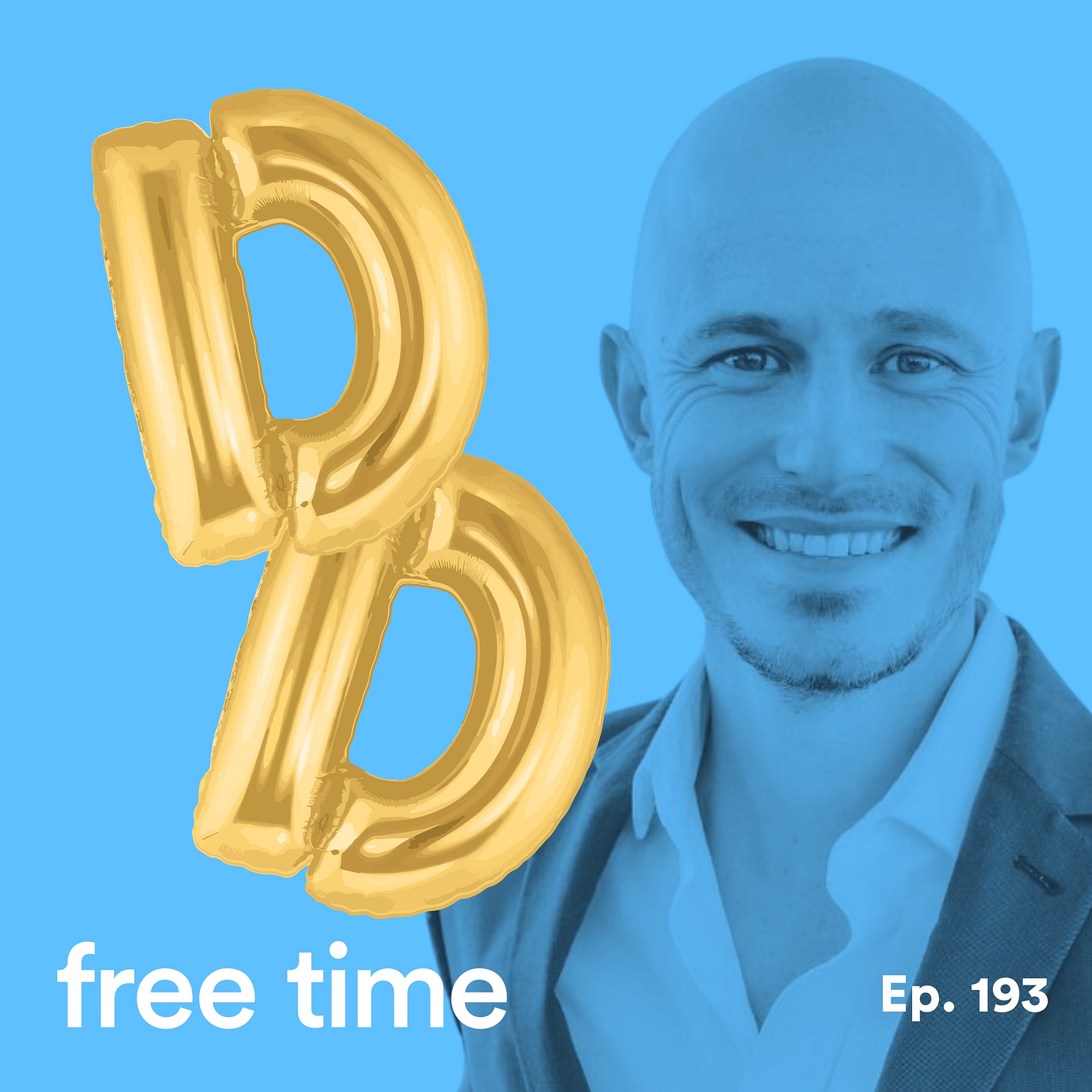The average American worker gets 11 days of paid vacation per year. Among those with unlimited paid time off (PTO), the average person takes 19 days off per year, yet 48% of Americans say they still check their work email while away.
What about business owners? Although it seems like we have more free time, the reality is that life as a business owner can be a 24/7 unceasing, all-consuming task. Even if you’re not at the computer, your passing thoughts probably drift toward what you need to do, projects to tackle, revenue gaps to make up for.
Today’s guest, DJ DiDonna, is an advocate for taking more abundant time off—ideally measured in months, not days or weeks. By DJ’s definition, sabbaticals should go beyond recovering from burnout; instead offering extended time to learn more about yourself in unstructured, even “unproductive” ways.
More About DJ
DJ DiDonna is a Senior Lecturer in the Entrepreneurial Management Unit at Harvard Business School, where he teaches the required first-year course: The Entrepreneurial Manager. In 2019, he founded The Sabbatical Project to define, explore, and research sabbaticals. He is currently working on a book based on this research, called Time Off Well Spent: A Sabbatical Manifesto.
🌟 3 Key Takeaways
DJ defines a sabbatical as: Measured in months not days or weeks; taken intentionally; no specific outcome in mind (i.e. not working or trying to achieve anything); where you are exploring and learning something new about yourself.
Three archetypes of sabbatical-takers: Explorer, Seeker, and Achiever. You might toggle between all three during your time off, switching modes from working holiday (passion project) to free dives (exploring the world), to more personal quests (existential discovery).
Sabbaticals ideally start slow, with extended time to heal: sleeping in, eating healthier, and reconnecting with family or friends. When sabbaticals serendipitously unfold from recovery to exploration to putting that learning into practice, they can “lead you to a really radical new self.”
📝 Permission
Take four to six months off, even if it’s two years from now to give you enough time to prepare. Entrepreneurs often grasp their role in their companies too tightly, and inadvertently create a business that will fail without them.
✅ Do (or Delegate) This Next
Look for the area of your business that would fail without you. What small step could you take today to bolster that area for the future?
🔗 Resources Mentioned
Videos: TEDxEVHS—DJ’s Sabbaticals: Time [off] well spent
TED—Stefan Sagmeister’s The Power of Time Off
Course: Sabbatical Basecamp
📚 Books Mentioned
Clockwork, Revised and Expanded: Design Your Business to Run Itself
The 4-Hour Work Week: Escape the 9-5, Live Anywhere and Join the New Rich
🎧 Related Episodes
How I Took a Month Off to Write & Make Art (and what REALLY happened)
146: New? Help Us Welcome the Next You (A Message for Your New Team Members)
124: Penney & Jenny Show — Embracing Liminal Space (the In-Between)
45: Happy Launch Day!! Pivot for the Podcast: James Altucher Interviews Jenny
❤️ Enjoying the show? Please leave a rating or review :)
💬 I’d love to hear what’s on your mind! Take the Free Time listener survey
🎧 Make sure you’re subscribed wherever you listen to ‘casts: http://pod.link/freetime
📝 Check out full show notes from this episode and share it with a friend!
💌 Subscribe to the Time Well Spent newsletter: http://itsfreetime.com/join













